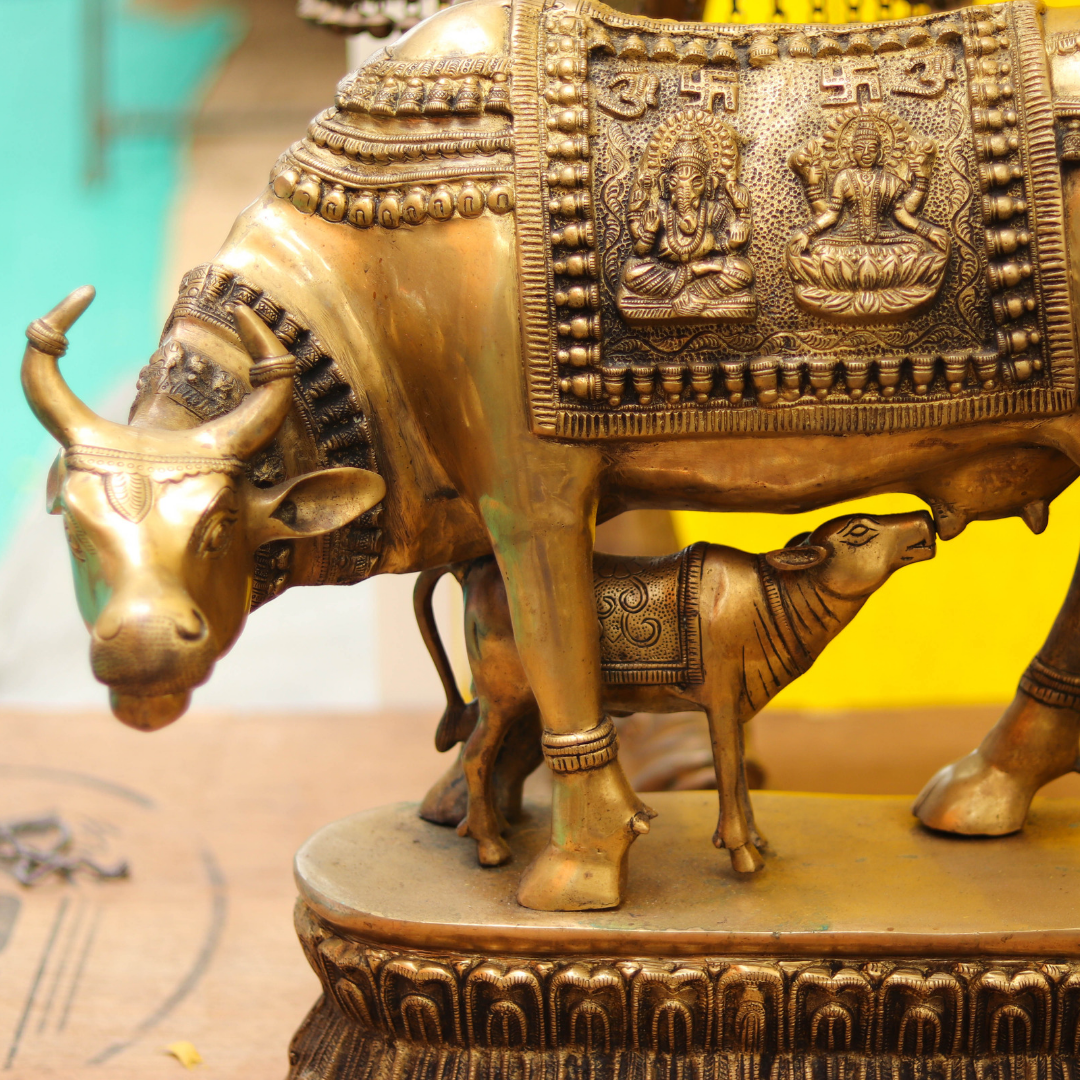BACKGROUND
In Hinduism, cows are regarded as sacred animals symbolizing purity, wisdom and love to mankind. In India, cow milk is often viewed as an ayurvedic medicine that nourishes the body from all illnesses and strengthens every cell. Pages of the Rig Veda (one of the earliest sacred Hindu texts) depict cows as Holy, believing that cow milk is both therapeutic and preventive in nature due to the effects of medicinal herbs mixed in the grass that cows eat to survive. It also talks about cow milk being used as a substitute for medicines for mild illnesses like migraines and body-aches in ancient India that had magical effects on one’s health. In addition, cows are often worshipped in Hindu temples and have a deep connection with a few Hindu deities, which we shall explore. Moreover, eating cow meat is prohibited in Hinduism, and it is a sin if one purposely indulges in this practice.
CONNECTION WITH DEITIES
Cows play a significant role in Hinduism by sharing a special bond with specific Hindu Gods and Goddesses. To begin with, Lord Shiva’s sacred bull named Nandi is believed to be his messenger and supports him in protecting the world from all evil deeds. Nandi is also known to be Lord Shiva’s incarnation of animal form, and some regard it as his most beloved devotee. Legend says that in today’s world, cows keep a secret watch over humans to ensure the stability of mankind and convey everything that happens here to Lord Shiva, who is believed to destroy the world by opening his Third Eye if crime and hatred start pouring in every house. Kamadhenu (the mother of all cows) is a spiritual cow figure in Hinduism who is known to fulfill wishes and can give her owner anything they desire or pray for. Her significance is closely related to Mother Earth’s selfless attitude to give without expecting anything in return. Cows also have a special connection with Lord Krishna, who spent most of his childhood herding cows and playing the flute in their company.
WORSHIPPING COWS
Cows are worshipped with grand and pompous celebrations during festival time. People also decorate cows with colourful bells and adorn them with bright clothes. Then they bow down in front of the cows and pray to it for constantly showering its blessings and gratitude on everyone. Some devotees are known to smear their foreheads with vermillions as a tribute of love to the cows. Cows also have temples dedicated to them in India, with sculptors carving their magnificent statues to represent the identity of the temples. The Bull Temple in Bangalore, India, is a famous temple dedicated to Nandi.
A HEATED DEBATE
Westerners often have a heated debate with Indians by questioning why they prohibit themselves from devouring cow meat when consuming cow milk? If Indians respect cows and treat them next to Gods, shouldn’t they be practicing Veganism and abstain from eating any cow products, including milk? The answer to these questions lies in the maternal attributes and qualities associated with cows in Hinduism. Devotees affirm that just like children drink their mother’s milk to gain the necessary vitamins and proteins for their health, they treat the cow like their mother for providing them with milk and drink it to express their devotion and respect. Ancient Hindu scriptures talk about the joy cows feel when they see the world drinking their milk and derive energy from its benefits.
CONCLUSION
Although Hinduism emphasizes the roles of cows in society as divine and bestows spiritual powers on them by declaring it a sin to consume cow meat, it does not criticize the beliefs or values of other religions and faiths. It accepts people for their ideologies and never forces anyone to abide by its values if one exercises different thoughts. The Holy Cow continues to be a fascinating subject for curious minds.




